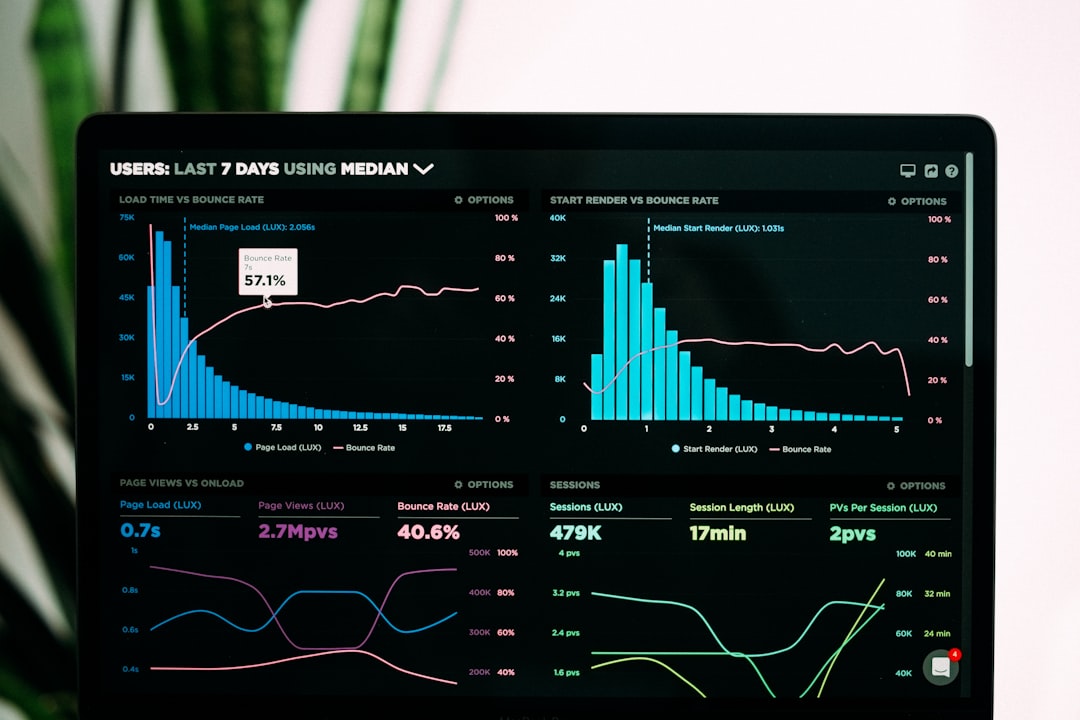Unlock encrypted content
Please enter your SSCE key to initiate on-the-fly decryption.
Decryption key: (Click cancel if you don't have the key)
Copied link to clipboard.
This feature is unavailable for free accounts. Upgrade now and enjoy all Premium benefits.
Go Premium!
This feature is unavailable for free accounts. Upgrade now and enjoy all Premium benefits.
Go Premium!
Please open this page in browser ( Google Chrome or Safari ) to use this feature.
Open In Browser
The Human-Machine Interface: Exploring the Future of Biotechnology and Data Security in 2030.
Random related video for this blog.
Copied share link to clipboard.
In the fast-paced world of technology, the human-machine interface (HMI) has emerged as a critical component of our daily lives. With advancements in biotechnology, robust uploading tools, and the Internet of Medical Things (IoMT), the HMI has revolutionized the way we interact with machines and access information. In this article, we will delve into the exciting possibilities that lie ahead in the realm of HMI, and how it will shape our lives in 2030. We will also explore the importance of data security and online technology in ensuring a safe and seamless human-machine connection.
Biotechnology and the Human-Machine Interface
Biotechnology has made tremendous strides in recent years, and its integration with the HMI opens up a world of possibilities. One of the most promising applications is in the field of genetic engineering, where scientists can manipulate the genetic code of organisms to enhance their capabilities. This has vast implications for the HMI, as it enables us to create more personalized and efficient machines that can adapt to our needs. Imagine a future where prosthetic limbs are seamlessly integrated with our nervous system, allowing individuals to control them with their thoughts. This level of biotechnological advancement would not only improve the quality of life for amputees but also revolutionize industries such as healthcare and manufacturing. With the HMI acting as the bridge between humans and machines, the possibilities for enhancing our capabilities are endless.Ensuring Data Security in the Human-Machine Interface
As our reliance on the HMI grows, so does the need for robust data security measures. In 2030, with the proliferation of online technology, data access has become more convenient than ever before. However, this convenience also brings about concerns regarding the privacy and security of our personal information. Cybersecurity solutions will play a crucial role in safeguarding our datain the HMI. Advanced encryption algorithms and authentication protocols will be implemented to ensure that only authorized individuals have access to sensitive information. Additionally, the development of secure platforms and networks will be paramount in preventing data breaches and unauthorized access. The Internet of Medical Things (IoMT) is an area where data security is of utmost importance. With the integration of medical devices and sensors into the IoMT, patient data is constantly being collected and transmitted. It is imperative that stringent security measures are in place to protect this data from malicious actors. By implementing robust encryption techniques and secure data storage solutions, the integrity and confidentiality of patient information can be maintained.
The Future of the Human-Machine Connection
In 2030, the human-machine connection will reach unprecedented levels of sophistication. With advancements in the HMI, our interactions with machines will become more intuitive and seamless. Voice recognition, facial recognition, and gesture-based controls will become the norm, allowing us to effortlessly communicate with our devices. One area where the human-machine connection will have a profound impact is in the field of healthcare. Remote patient monitoring will become more prevalent, with wearable devices continuously collecting data and transmitting it to healthcare providers. This real-time data will enable healthcare professionals to make more accurate diagnoses and provide personalized treatment plans. Moreover, the HMI will also revolutionize the way we access and share information. With the integration of online technology, individuals will have instant access to vast amounts of knowledge at their fingertips. Whether it is for educational purposes, research, or entertainment, the HMI will provide a seamless and immersive experience.Conclusion
In conclusion, the human-machine interface, coupled with biotechnology, robust uploading tools, and the Internet of Medical Things, will shape the future in remarkable ways. From enhancing our physical capabilities through genetic engineering to ensuring data security in the age of online technology, the HMI will play a pivotal role in our lives in 2030. As we embrace the potential of the HMI, it is crucial to prioritize data security and privacy. By implementing robust cybersecurity solutions and encryption techniques, we can ensure that the human-machine connection remains safe and secure. The future is bright for the HMI, and it is up to us to harness its potential for the betterment of society.Frequently Asked Questions (FAQs)
Question: How will the Human-Machine Interface impact healthcare in 2030? Answer:
The Human-Machine Interface will revolutionize healthcare in 2030. With advancements in biotechnology and the Internet of Medical Things, healthcare professionals will have access to real-time patient data, enabling more accurate diagnoses and personalized treatment plans.
Question: What role does data security play in the Human-Machine Interface? Answer:
Data security is of utmost importance in the Human-Machine Interface. Robust encryption techniques and secure data storage solutions are essential in protecting sensitive information and ensuring the integrity and confidentiality of data.
Question: How will the Human-Machine Interface enhance our daily lives in 2030? Answer:
The Human-Machine Interface will make our daily lives more seamless and intuitive. Voice recognition, facial recognition, and gesture-based controls will become more prevalent, allowing us to effortlessly communicate with our devices. Additionally, instant access to vast amounts of information will be available through online technology.
By Amelia Isabella
Email: [email protected]
Related
Efficient Data Transfer and Secure Collaboration with Brain-Computer Interface
June 14, 2023
Read More
Li-Fi (Light Fidelity): Revolutionizing Autonomous Driving and Cloud Storage Reliability.
June 14, 2023
Read More
Blockchain Technology and Futuristic Gadgets: Revolutionizing Data Sharing Options
June 14, 2023
Read More
File Access Auditing: Enhancing Security and Accountability in Galactic Empires
June 14, 2023
Read More
Brain-Computer Interfaces (BCIs) Revolutionizing Self-Driving Cars and Cloud Infrastructure
June 14, 2023
Read More
The Future of Data Storage: Exploring Virtual Realities and Compliance-Ready...
June 14, 2023
Read More
Popular
Exploring the Intersection of Technology: From Cybersecurity to Augmented Reality...
November 16, 2025
Read More
The Future of Technology: Exploring Biohacking, Space Tourism, and Digital...
November 23, 2025
Read More
The Future of File Sharing: Streamlined Workflows for Photographers and...
November 19, 2025
Read More
Exploring the Benefits of Cloud Storage and Innovative Technologies in...
November 26, 2025
Read More
The Future of Digital Transformation: Exploring Smart Homes, Efficient File...
November 30, 2025
Read More
Latest
The Future of Digital Transformation: Exploring Smart Homes, Efficient File...
November 30, 2025
Read More
Exploring the Benefits of Cloud Storage and Innovative Technologies in...
November 26, 2025
Read More
The Future of Technology: Exploring Biohacking, Space Tourism, and Digital...
November 23, 2025
Read More
The Future of File Sharing: Streamlined Workflows for Photographers and...
November 19, 2025
Read More
Exploring the Intersection of Technology: From Cybersecurity to Augmented Reality...
November 16, 2025
Read More
The Future of File Management: Embracing Edge Computing and Efficient...
November 12, 2025
Read More
The Future of File Sharing: Exploring User-Friendly Solutions and Data...
November 5, 2025
Read More
The Future of Cloud Storage: How FileLu Empowers Creative Professionals...
November 2, 2025
Read More
The Future of Autonomous Technologies: Innovations in Robotics, File Sharing,...
October 29, 2025
Read More
Emerging Technologies Revolutionizing File Management: From Li-Fi to Robust Collaboration...
October 26, 2025
Read More
Emerging Technologies: Exploring the Impact of File Access Auditing, Genetic...
October 19, 2025
Read More
The Future of Data Storage: Exploring Advanced Encryption, Mobile Integration,...
October 5, 2025
Read More
Exploring the Future of Data Management: Security, Efficiency, and Cognitive...
September 28, 2025
Read More
Revolutionizing Data Management: Innovations in Storage, Security, and Sustainable Technology.
September 24, 2025
Read More




















